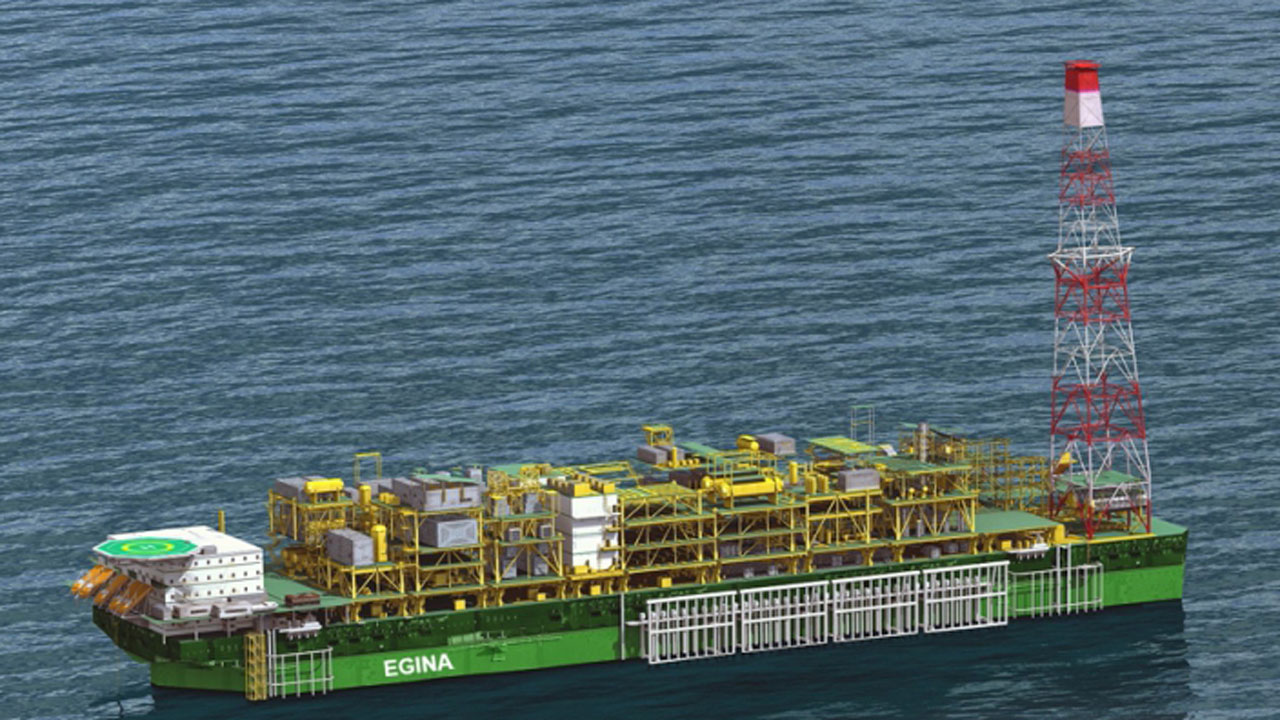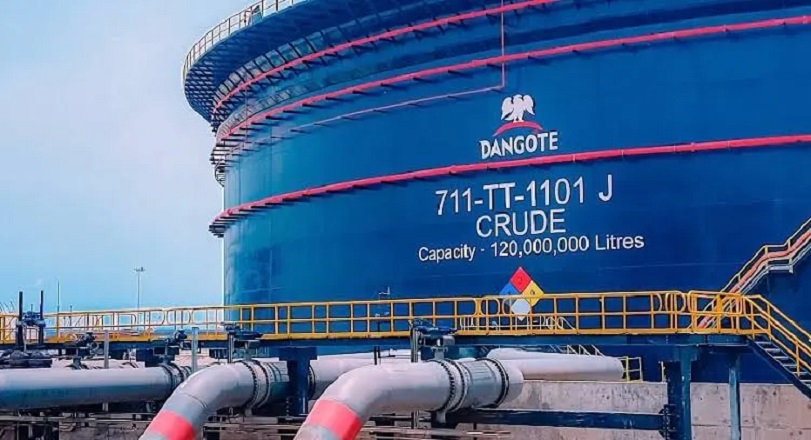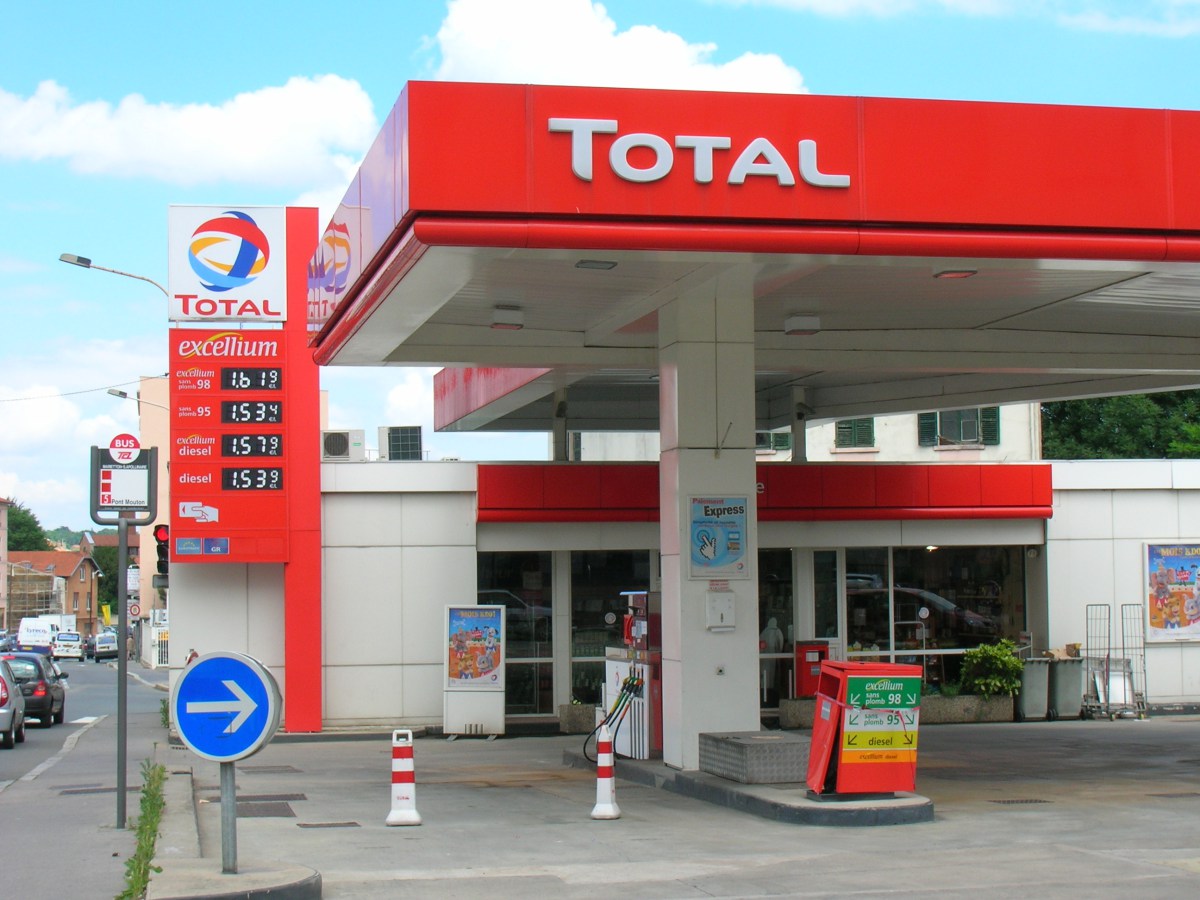Economy
Egina Oilfield to Bear 40% of Nigeria’s Crude Output Cut

By Adedapo Adesanya
French oil and gas firm, Total’s Egina, will be responsible for almost 40 percent cut as Nigeria plans to achieve full compliance with the Organisation of the Petroleum Exporting Countries and allies (OPEC+) cut extension.
Nigeria was one of the laggard countries that did not meet its target of shutting in 417,000 barrels per in the month of May.
However, OPEC+ agreed to extend cuts by 9.7 million barrels per day for the next one month and the country pledged to make up for cuts missed last month.
The agreement will be reviewed every month until December.
The meeting held last Saturday was to force countries with low compliance, Nigeria inclusive to comply fully.
The Minister of State for Petroleum Resources, Mr Timipre Sylvia, confirmed and said the country make up for its slackness by producing lesser in July through September.
“Nigeria subscribes to the concept of compensation by countries who are unable to attain full conformity (100 percent) in May and June to accommodate it in July, August and September,” he said at the weekend.
With this, the new field, Egina will bear the largest burden of cuts in Nigeria, shouldering around 40 percent cuts on behalf of the country.
With this, the country will produce 1.6 million barrels per day in June.
Egina in May produced about 131,000 barrels per day of crude in May, this is 33 percent less than April’s production averaged 201,000 barrels per day.
With this, Egina June’s output will go lower to 122,000 barrels per day.
The cut will not affect the firm’s other fields – Akpo, which still produces around 100,000 barrels per day as it produces mostly condensates, which are exempted from the cuts.
According to the OPEC+meeting’s draft communique, any member that does not implement 100 percent of its production cut in May and June will make extra reductions from July to September to compensate for their failings.
Commenting on this, Secretary-General of OPEC, Mr Mohammad Barkindo, said, “The productions adjustments agreed in April are by far the largest and longest in the history of OPEC, OPEC+ and the global oil industry.
“The unparalleled commitment, and the unity and courage for the common cause of oil market stability has been positive.”
Economy
Interest Rates May Remain Elevated Despite Inflation Cooling—PwC

By Adedapo Adesanya
According to PricewaterhouseCoopers (PwC), Nigeria’s benchmark interest rate is likely to remain elevated in 2026 even as inflation shows signs of easing.
Speaking at the PwC–BusinessDay Executive Roundtable on Nigeria’s 2026 budget and economic outlook in Lagos on Thursday, the Chief Economist and Head of Strategy at PwC, Mr Olusegun Zaccheaus, said expectations of aggressive interest rate cuts might be premature even with the core factor – inflation – seen cooling.
“Interest rates may remain elevated despite inflation cooling for most of 2025,” Mr Zaccheaus said. “Perhaps not by the 500 basis points some hope for, due to the need to manage liquidity.”
The Central Bank of Nigeria (CBN) had more than doubled its policy rate from 2022 levels in a bid to rein in inflationary pressures, before implementing a 50 basis-point cut in September that brought the monetary policy rate to 27 per cent.
The move followed a sharp moderation in inflation from its late-2024 peak. Inflation slowed to 15.15 per cent in December 2025, while the economy expanded by 3.98 per cent in the third quarter, its strongest quarterly growth in years.
At the last Monetary Policy Committee (MPC) meeting of the CBN in November 2025 voted to keep the interest steady.
The PwC official warned that warned that underlying risks, including exchange-rate volatility, fiscal pressures and global uncertainty, continue to complicate the outlook.
Mr Zaccheaus said that a major challenge for the apex bank will be to control the volume of money circulating in the economy.
He advised that liquidity management remains critical as excess cash can quickly undermine dis-inflation efforts particularly as the 2027 election cycle is around the corner.
He said that Nigeria typically experiences rapid growth in money supply ahead of election cycles, driven by increased government spending and political activity, adding that without careful coordination, such expansions risk fueling inflation and weakening investor confidence.
“The responsibility of the central bank is to ensure liquidity does not grow in a way that has a negative macroeconomic impact,” Mr Zaccheaus said.
He noted that a stable currency environment would support improved capital allocation and investment planning.
“FX stability is crucial,” Mr Zaccheaus said. “It gives investors confidence and allows businesses to plan. But that stability depends on disciplined policy execution.”
Economy
Dangote Refinery Assures Steady Daily Supply of 75 million Litres of PMS, Others

By Aduragbemi Omiyale
If the assurance from the Dangote Petroleum Refinery is anything to take to the bank, then consumers of petroleum products in Nigeria have nothing to worry about in terms of availability.
The refinery has assured that it has the capacity to supply to them on a daily basis about 75 million litres of premium motor spirit (PMS), otherwise known as petrol; 25 litres of automated gas oil (AGO), also known as diesel; and 20 litres of jet fuel.
Nigeria is estimated to consume about 50 million litres of petrol per day, 14 million litres of diesel, and four litres of aviation fuel.
Dangote Refinery in a statement said the availability of volumes above prevailing demand provides critical supply buffers, enhances market stability and reduces reliance on imports, particularly during periods of peak demand or logistical disruption.
“The management of Dangote Petroleum Refinery would like to reiterate our capability to supply the underlisted petroleum products of the highest international quality standard to marketers and stakeholders,” it said in a public notice.
Industry analysts noted that supplying above estimated consumption reduces the need for emergency imports, strengthens inventory cover, enhances the resilience of the domestic supply chain, and boosts the foreign exchange ecosystem, thereby fortifying the value of the Naira in the currency market.
Dangote Refinery has also reaffirmed its commitment to full regulatory compliance and continued cooperation with the Nigerian Midstream and Downstream Petroleum Regulatory Authority (NMDPRA), stating that its supply approach is aligned with ongoing efforts to ensure market stability and orderly downstream operations.
It said it remains fully engaged with regulators and industry stakeholders in support of Nigeria’s national energy security objectives, as the country deepens its transition from fuel import dependence to domestic refining. It added that it continues to work closely with market participants to ensure that the benefits of local refining, including reliable supply, competitive pricing and improved market discipline are delivered consistently to consumers nationwide.
Economy
Sachet Alcohol Ban: NECA Demands Respect for Due Process

By Adedapo Adesanya
The Nigeria Employers’ Consultative Association (NECA) has expressed concern over the renewed enforcement of a ban on the production and sale of alcoholic beverages in sachets and small PET bottles by the National Agency for Food and Drug Administration and Control (NAFDAC).
The group’s director general, Mr Wale-Smatt Oyerinde, warned that the action of the agency could have adverse economic and governance consequences.
NECA is the organisation expressing worry of this issue after the Manufacturers Association of Nigeria (MAN) raised concerns about it earlier this week.
Mr Oyerinde said the enforcement contradicts a directive from the Office of the Secretary to the Government of the Federation dated December 15, 2025, which suspended the ban, as well as a March 14, 2024 resolution of the House of Representatives calling for restraint and broader stakeholder engagement.
The NECA chief said the continued enforcement is already disrupting legitimate businesses, unsettling ongoing investments, and putting thousands of jobs at risk, while weakening confidence in Nigeria’s regulatory environment.
According to Mr Oyerinde, regulation should be based on evidence, proportionality and the rule of law. He noted that the affected products were tested, registered and periodically revalidated under NAFDAC’s regulatory procedures, with alcohol content clearly labelled in line with internationally recognised Alcohol by Volume standards.
He added that underage drinking is primarily an enforcement issue at the retail level rather than a packaging issue, and called for stricter licensing, monitoring, and sanctions for erring retailers rather than a blanket ban on certain product formats.
NECA boss also warned that sachet and small-pack formats reflect affordability realities for many adult consumers, and that eliminating them could push demand into informal, unregulated markets, increasing public health risks and shrinking the formal economy.
He further expressed concern that enforcement efforts are focused on a regulated segment of the beverage industry while more dangerous illicit narcotics and abused pharmaceuticals continue to circulate widely among young people.
On the economic impact, NECA said the wines and spirits value chain supports significant direct and indirect employment across manufacturing, packaging, distribution, transportation, retail and agriculture.
It cautioned that sudden regulatory actions could threaten livelihoods, reduce government revenue and undermine investor confidence.
Addressing environmental concerns, NECA said plastic waste issues should be tackled through improved waste management, recycling systems and extended producer responsibility frameworks, rather than selective product bans.
-

 Feature/OPED6 years ago
Feature/OPED6 years agoDavos was Different this year
-
Travel/Tourism9 years ago
Lagos Seals Western Lodge Hotel In Ikorodu
-

 Showbiz3 years ago
Showbiz3 years agoEstranged Lover Releases Videos of Empress Njamah Bathing
-

 Banking8 years ago
Banking8 years agoSort Codes of GTBank Branches in Nigeria
-

 Economy3 years ago
Economy3 years agoSubsidy Removal: CNG at N130 Per Litre Cheaper Than Petrol—IPMAN
-

 Banking3 years ago
Banking3 years agoSort Codes of UBA Branches in Nigeria
-

 Banking3 years ago
Banking3 years agoFirst Bank Announces Planned Downtime
-

 Sports3 years ago
Sports3 years agoHighest Paid Nigerian Footballer – How Much Do Nigerian Footballers Earn













